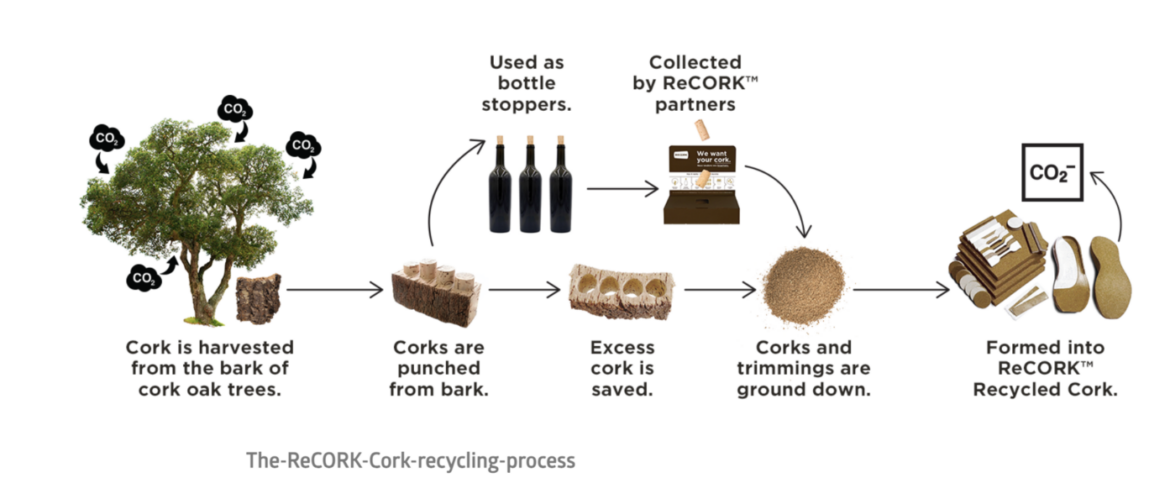Some time ago, local supermarkets accepted bottle corks for recycling, but those programs ended. Happily, there is another solution. Thanks to a mission-driven business, ReCORK, used bottle corks can be recycled and transformed into other useful items. ReCORK grounds the corks down and re-agglomerates them into new consumer products, such as cork soles for shoes or cork footpad inserts. These products, in turn, may again be collected, reused and
reconstituted.
Cork represents a sustainability success story. All cork bottle stoppers begin as bark of cork oak trees, which mainly live in North Africa and the Iberian Peninsula. Cork oak forests offer natural habitat to a variety of plants, animals and birds, including the vulnerable Iberian lynx (at one time the most threatened feline in the world) and the endangered Barbary macaque.
The bark of the cork oaks, hand-harvested, are punched into service as bottle corks. The trees do not suffer harm when the bark is stripped; in fact, in the 150 to 200-year lifespan of the cork oak tree, the bark may be harvested about 15 times because the bark grows back completely. Natural cork bottle stoppers supplant petroleum-based
alternatives, like foam or plastic stoppers.
After cork bottle stoppers land on the tables in kitchens, restaurants and bars, the opportunity for a true circular cork economy begins. According to its website, ReCORK has already processed well more than 100 million bottle corks in North America. Yes, small acts, if done by many, produce outsize returns.
Piedmonters: Please collect your corks and save them. ReCORK puts collection boxes in various locations, such as in certain Total Wines & More stores.
Piedmont corks should join the millions of their cork cousins that have been deposited with ReCORK to be used again and again. Corks need not add to a land fill. Let’s help our bottle corks “re-in-cork-nate.”
